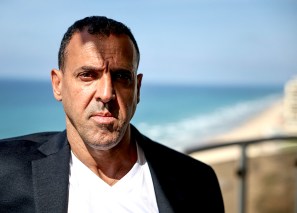The final week of the local election campaign begins today. Much of the weekend discourse was dominated by the fall-out from Robert Jenrick’s comments about a potential ‘coalition’ with Reform. Strikingly, Ben Houchen – the most senior Conservative left in elected office – used his appearance on Laura Kuenssberg’s BBC show to suggest that if both parties win seats in 2029 then ‘obviously there is going to be a conversation to form a coalition or some sort of pact’ to keep Labour out.
Now, in one sense, Houchen is correct to say that, in the event of a 2010-style hung parliament, it would make sense to discuss a deal with Reform. The remarks made by the Tees Valley Mayor are likely to mirror many conversations happening this time next week, when Tory and Reform councillors across the country will be forced to discuss power-sharing in authorities where there is ‘no overall control’. But Houchen’s remarks – which, in fairness, referred to a theoretical parliament some four years away – envisage a situation quite distinct from the current political reality.
A Clegg-Cameron style love-in is hard to imagine anytime soon
There are three major problems currently with a Tory-Reform pact. The first is that many Conservatives do not want it. Here are a selection of thoughts from a handful of Conservative MPs across the party: ‘Madness’, ‘In my seat, it won’t win votes’ and ‘I don’t want anything to do with that man’. That man, of course, is Nigel Farage; given the fate of many of his onetime allies, this comment is perhaps not too surprising. But away from personal issues, many Tories simply feel that Reform do not hail from the same ideological tradition – a sentiment many in Reform heartily reciprocate.
The second problem are the Reformers. ‘We’re ahead in the polls’, says one aide. ‘Why tie our brand to a sinking ship?’ Many of the party’s 225,000 members – indeed, perhaps most – have little truck with the Tories. On Wednesday night, Alex Wilson – Reform’s only London Assembly member – addressed a branch of local activists and was barracked when he asked them what they thought of a deal with the Conservatives. It is true that some of Reform’s leadership were once Tory members, but they have since broken decisively with their erstwhile party. CCHQ’s many years slogging it out with Team Farage mean that a Clegg-Cameron style love-in is hard to imagine anytime soon.
The third issue is the actual voters. On everything from economic and foreign policy to national institutions and free enterprise, you see major differences between Reform 2024 voters and Conservative 2024 voters. As pollster Luke Tryl has noted, voters are not lego bricks: only 31 per cent of Farage’s backers in More in Common’s post election poll say they would have considered voting for the Tories instead. Given Reform’s appeal as the main anti-establishment party, one wonders how their brand would fare if they allied with the Conservatives: the political embodiment, for many voters, of the establishment that they despise.
The Reform/Tory battle has many outcomes. Farage’s forces might implode like Ross Perot’s American Reform party; the one thing some in his circle genuinely fear. There could be a Canada-style merger, in which Reformers dominate the legacy party. The Tories could swallow up their rival, like they did with the Liberal Unionists and National Liberals. Or, they might simply die, like much of the traditional centre-right across Europe. But each option has trade-offs and a pact, of any kind, is not without risks to either one or both of the two parties.







Comments